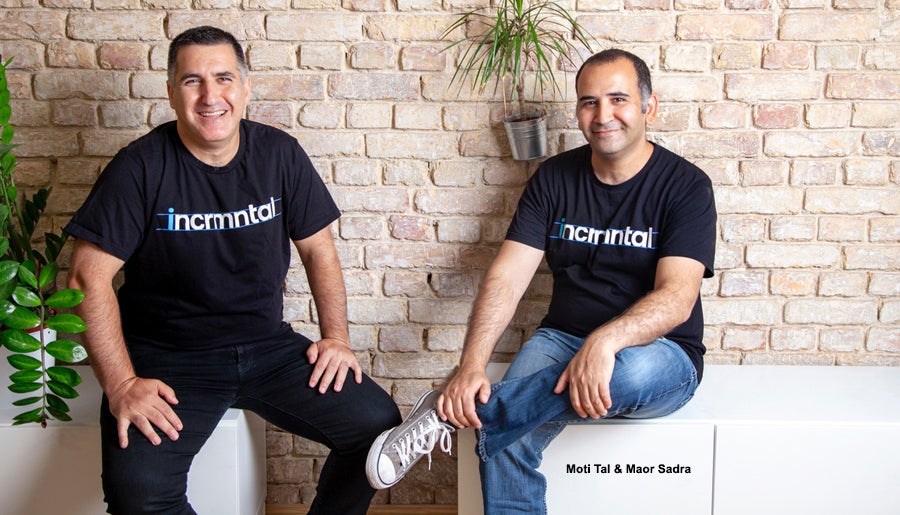Incrementality startup INCRMNTAL announced the close of its $4.1 million seed round on Monday, bringing its total funding to $5.5 million.
The round was led by Play Ventures VC with participation from Heracles Capital, a $10 million fund focused on mobile investments that was launched in May by Mobile Dev Memo Founder and all-around mobile smartypants Eric Seufert.
INCRMNTAL, which uses AI to measure the impact of marketing on an ongoing basis without having to run discrete experiments, first launched in October 2020 with $1.4 million in pre-seed funding.
Incrementality measurement helps marketers figure out whether the results they’re seeing would have happened even without any of their marketing efforts – that often-difficult-to-identify relationship between correlation and causation.
“It’s the best way to understand the actual value,” said Maor Sadra, INCRMNTAL’s CEO and co-founder. “MTA in a privacy-centric world – it simply does not exist,” Sadra said.
The MTA question
But INCRMNTAL was almost a multi-touch attribution company itself.
Sadra, who had long been frustrated with the state of measurement on mobile during his time in executive roles at AppLift and Inneractive, joined his former Inneractive colleague, Moti Tal, after leaving AppLift in mid-2020 with the idea of developing a product to measure the true impact of marketing activities.
“I really wanted us to build the world’s best multi-touch attribution solution,” Sadra said. “But Moti, thankfully, was the smarter one, and he said, ‘No, no, no – we need to go after incrementality.’”
Marketers don’t need cookies or identifiers to run an incrementality test, which is appealing in a world where user-level data is getting harder and harder to come by. But, historically, incrementality testing has been, no other way to say it, an enormous pain in the arse.
The classic way to run an incrementality test is to turn off an ad channel, wait for a set period of time, restart marketing, then attribute any dip in sales to the pullback.
But that often isn’t feasible or even sensible to do, especially for larger marketers with high brand awareness. “Let’s say Coca-Cola turns off their marketing – how much would that actually impact their sales in the first couple of months?” Sadra said. “It would take a long, long time.”
Always on
INCRMNTAL uses a causal data science approach to track the effectiveness of marketing as it’s happening by determining the connection between cause and effect of every action a marketer takes across channels, however momentous or minor. The goal is to track everything from the launch of a new TV campaign to swapping out a piece of creative on the web.
It’s able to do this using a tool it developed called the marketing activity logger, which, as its name denotes, automatically logs every change a marketer makes and pulls aggregated data by plugging into a marketer’s platform partners, attribution partners, BigQuery or any other data warehouse. Marketers can also manually add information, like “Started running a TV campaign on ABC today.”
INCRMNTAL’s model is then able to create a prediction of what would have happened if the advertiser hadn’t, for instance, run that TV campaign on ABC, while also taking seasonality and other external factors into consideration.
“The model can handle when there are multiple activities happening on the same day,” Sadra said.
For example, INCRMNTAL works with two mobility apps, Bolt and TIER. During the Tube strike in June in the UK, INCRMNTAL’s system was able to recognize that the massive peak in app usage was unrelated to their paid marketing.
“Our idea is to measure a marketer’s activities all the time so they can see a full picture and not have to plan and run experiments that may affect their business,” said Tal, INCRMNTAL’s CTO and Sadra’s co-founder.
But what about all of the big brands that are going all in on MTA, like Molson Coors, for example, and AT&T? The majority of large advertisers now use MTA, according to a report released by marketing trade org MMA Global last week.
“It’s just not scalable, because it needs to be done per customer,” Sadra said. “Even if you nail down an MTA model and then you decide to start doing something new, like in-game advertising or CTV, your MTA model breaks and you have to go and create another one.”
Up next
According to Sadra, INCRMNTAL hasn’t had to do any outbound marketing in large part thanks to Apple’s privacy changes and signal loss in general, but the funding will help the company scale its operations.
INCRMNTAL plans to double its engineering team of 11 and create sales and marketing departments by the end of the year, which it really does need. Until now, Sadra was the only non-engineer in the company, and he’s personally been handling every customer demo.
The company is also planning to launch a self-service integration by the end of the year so that customers can test the platform on their own before deciding whether they want to sign up for a license.














